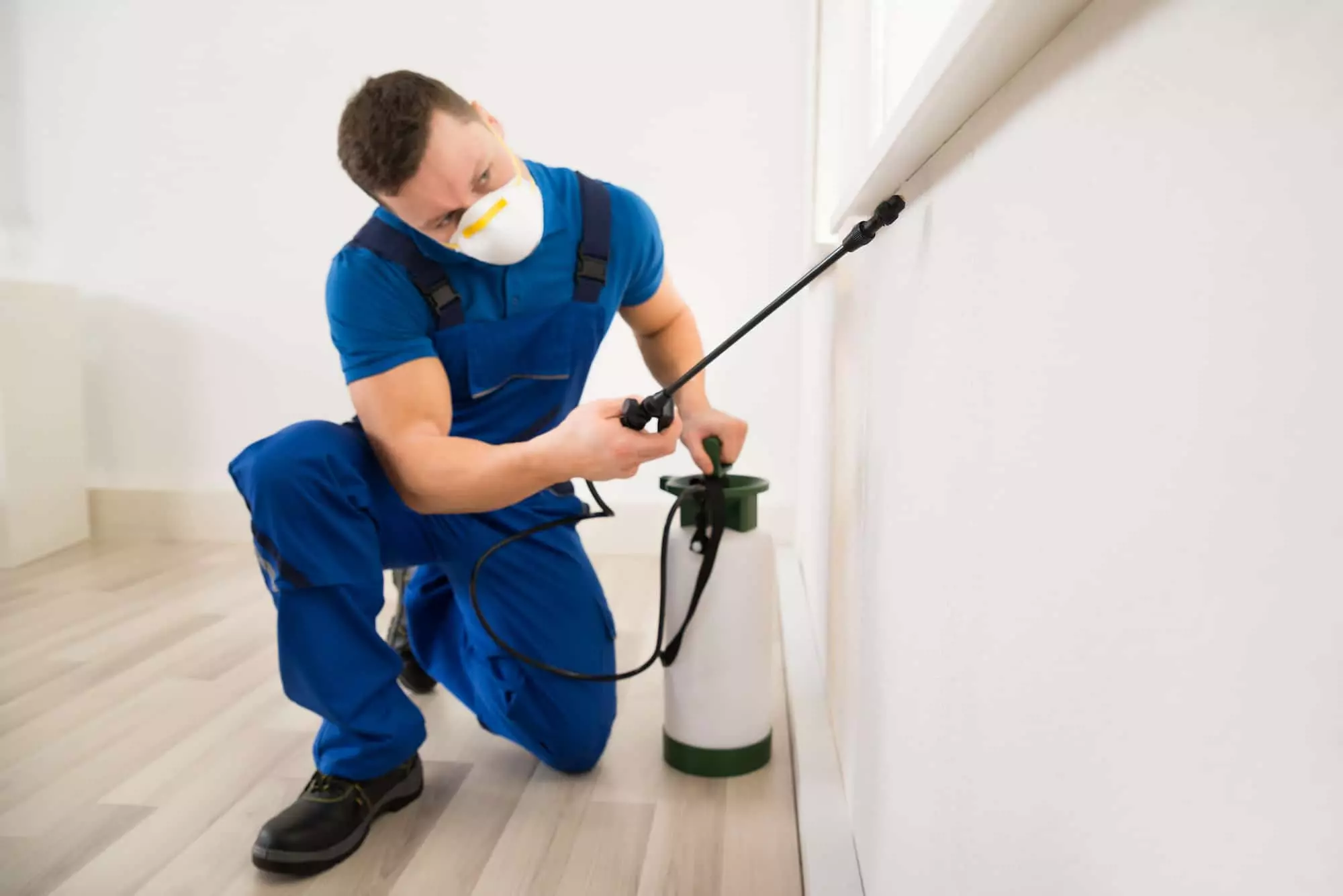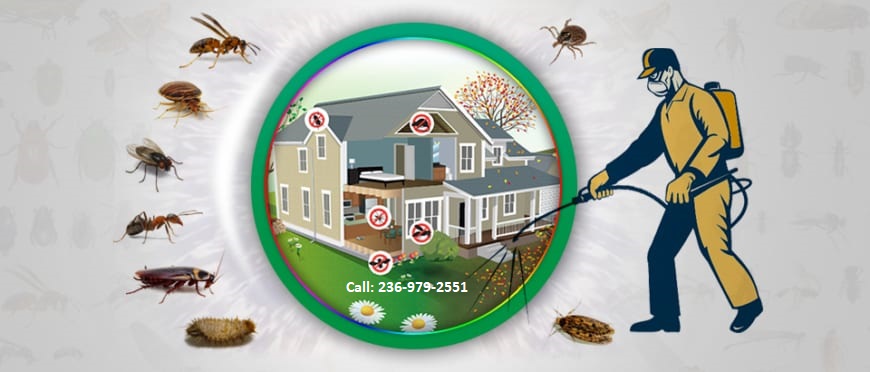Experienced Coquitlam Exterminator for Comprehensive Pest Removal
Experienced Coquitlam Exterminator for Comprehensive Pest Removal
Blog Article
Safe and Trusted Insect Control for Lasting Protection
Reliable parasite monitoring needs a diverse method that balances eco-friendly integrity with the demand for reliable bug suppression. The nuances of these approaches might not be quickly clear, triggering a better exam of the methods that can lead to sustainable bug control outcomes.
Recognizing Pest Control Methods
Insect control incorporates a range of methods targeted at handling and eradicating undesirable insects and rodents that can intimidate both health and wellness and home. Comprehending these approaches is important for reliable insect monitoring.
The main groups of pest control methods include mechanical, organic, and chemical techniques. Mechanical techniques entail physical obstacles and traps to avoid insect entrance and capture undesirable types. As an example, utilizing screens on windows or using sticky catches can substantially lower parasite populaces without introducing dangerous materials.

Chemical insect control is commonly the most recognized method, using pesticides to remove insects. These chemicals can be effective however must be used with care to avoid damaging effects on non-target species and the atmosphere.
Advantages of Eco-Friendly Solutions
Just how can environmentally friendly services change bug control techniques? The fostering of environmentally friendly insect control approaches provides many benefits, considerably improving the effectiveness and safety and security of insect administration.
Another benefit is the favorable influence on local biodiversity. Green remedies are developed to target specific insects while protecting useful insects and wild animals, advertising a balanced ecosystem. This strategy aligns with the expanding customer need for lasting practices, improving the track record of pest control carriers.
Integrated Insect Management Techniques
The implementation of environment-friendly remedies naturally results in the fostering of Integrated Pest Management (IPM) strategies, which further enhance pest control effectiveness. IPM is an alternative approach that incorporates numerous strategies to handle insect populaces while minimizing ecological influence. This strategy emphasizes making use of organic, cultural, mechanical, and chemical controls, guaranteeing a sustainable and well balanced approach of parasite management.
One fundamental element of IPM is the extensive assessment of pest activity and environmental conditions. By monitoring insect populaces and determining their life process, specialists can carry out targeted treatments that interfere with the bug's environment or lifecycle, lowering reliance on chemical pesticides. Furthermore, social techniques such as plant turning and habitat manipulation can considerably decrease parasite facility and reproduction.
Another critical component is the use of biological control representatives, such as beneficial bugs or microbes, which can naturally reduce bug populations. When chemical applications are needed, IPM focuses on using low-risk pesticides and uses them selectively, lessening direct exposure to non-target microorganisms and people.
Including IPM techniques not just improves parasite control performance but likewise promotes a safer community, lining up with the expanding demand for lasting methods in pest administration.
Safe Practices for Homeowners
Recognizing the significance of risk-free techniques in insect control can encourage homeowners to efficiently manage parasite issues while safeguarding their health and Visit Website wellness and the environment. Carrying out non-toxic methods and preventive measures is critical in decreasing exposure to hazardous chemicals.
Home owners must first assess their environment for problems that bring in parasites, such as standing clutter, food, and water waste. Routinely cleaning and securing entry factors can prevent insects from attacking the home. Making use of natural deterrents, such as vital oils or diatomaceous planet, can provide effective choices to chemical pesticides.
When chemical treatments are required, home owners need to select items that are specifically classified as secure for residential usage. It is vital to comply with application guidelines diligently to avoid overexposure. In addition, using targeted therapies in areas where pests are identified, rather than covering spraying, can dramatically lower chemical use.
Last but not least, preserving open communication with bug control professionals is essential. Property owners need to ask about the safety and security of products used and demand environment-friendly options whenever feasible. By adopting these safe methods, property owners can produce a healthier living setting while effectively taking care of pest concerns.

Tips for Long-Term Protection
Developing a pest management approach that highlights lasting defense can greatly enhance the performance of the safe methods formerly gone over. To accomplish this, house owners need to apply regular examinations of their property, concentrating on concealed locations such as attics, cellars, and crawl spaces. Early detection of pest task is essential in avoiding invasions from taking hold.
These methods reduce attractants that draw pests right into the home. Securing entrance factors, such as fractures around home windows and doors, can efficiently obstruct possible pest access.
Landscape design ought to likewise be thought about; maintaining plants trimmed and keeping a distance in between plant life and the home minimizes concealing spots for bugs. Making use of natural deterrents, such as crucial oils or diatomaceous earth, rodents can further dissuade invasions without considering severe chemicals.
Finally, working together with a specialist bug my link control solution for periodic examinations can supply an added layer of security. These experts can offer customized suggestions and progressed treatments, making sure that your home continues to be safeguarded against parasites in the lengthy term.
Verdict
Finally, safe and trustworthy parasite control calls for a diverse strategy that highlights environmentally friendly methods and incorporated parasite monitoring. By carrying out natural deterrents, carrying out normal evaluations, and keeping correct sanitation, homeowner can dramatically minimize bug populaces while safeguarding beneficial pests and the environment. Cooperation with expert bug control solutions improves the efficiency of these strategies, making certain tailored options that offer enduring security and comfort against future invasions.
Efficient parasite monitoring needs a multifaceted approach that balances environmental integrity with the requirement for effective pest reductions. The adoption of environmentally friendly pest control approaches supplies countless benefits, significantly enhancing the effectiveness and safety of pest administration.The application of eco-friendly services normally leads to the adoption of Integrated Bug Management (IPM) methods, which better enhance pest control efficiency. exterminator coquitlam. By checking parasite populations and identifying their life cycles, professionals can apply targeted interventions that disrupt the bug's environment or lifecycle, lowering dependence on chemical pesticides.In verdict, reliable and risk-free insect control calls for a diverse strategy that emphasizes green approaches and integrated insect management
Report this page